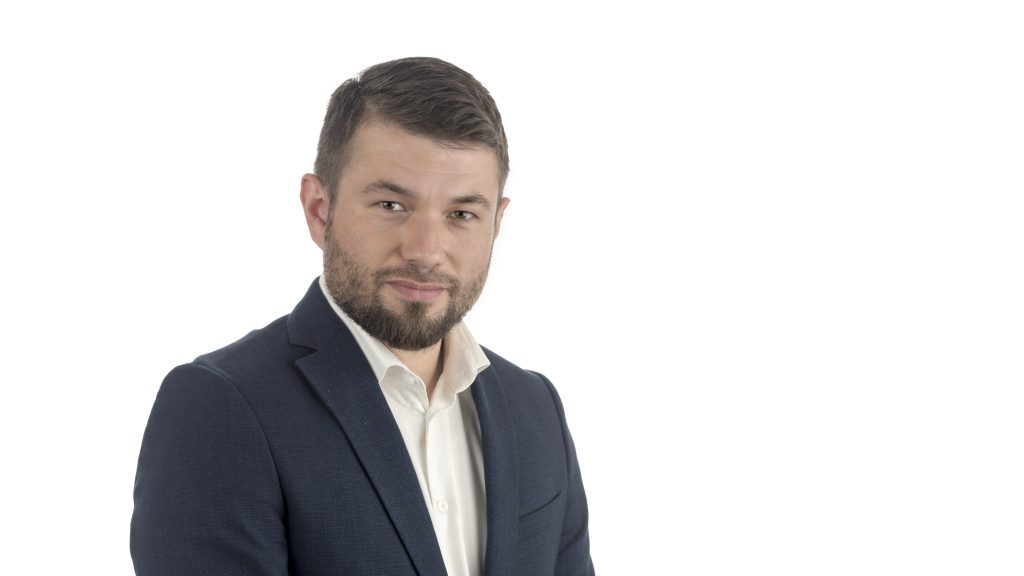
In this interview Ivan Cvitić, Assistant Professor at University of Zagreb, spoke to Michal Hochel about his motivation for, and significant milestones achieved in the fields of cyber security and quantum communications, as well as his experience with EAI conferences. Additionally, Mr. Cvitić shared great advice for junior researchers to progress and move forward in professional societies.
What motivated you to pursue a career in research?
My fascination with understanding and improving cybersecurity, specifically in the domain of network anomalies and forensic analysis, began during my undergraduate studies at the Faculty of Transport and Traffic Sciences, University of Zagreb, Croatia. The ever-evolving challenges in cybersecurity, particularly those related to network traffic anomalies, ignited my passion for continuous learning and research. This was strongly reinforced by the insightful guidance of my mentor, Prof. Dr. Dragan Peraković, during my doctoral studies. My motivation is driven by a commitment to enhance the security and reliability of communication networks, which are critical in today’s digitally interconnected world. I am particularly motivated by the goal of developing innovative solutions to protect against emerging cyber threats and ensuring robust forensic capabilities.
What significant milestones did you encounter that were decisive for your current research specification?
Significant milestones in my academic journey include the completion of my doctoral thesis, which was a profound turning point as it established my expertise in cybersecurity and applied machine learning. Being appointed as the Head of the Laboratory for Cybersecurity and Digital Forensics further shaped my research direction towards advanced cybersecurity measures.
Another pivotal milestone was my role as the secretary of the Innovative FET Association, where I engaged with forward-thinking research and innovation in quantum technologies. My involvement with the Croatian Quantum Communication Infrastructure project and the CEN-CENELEC Focus Group on Quantum Technologies has been instrumental in steering my research towards quantum communications. My activities in the Research Task Group on Architecture and Standardization and Interoperability of Quantum Communication further solidified my focus on this cutting-edge domain.
Additionally, my role in the NATO Research Task Group IST-218 on Multi-Domain Quantum Key Distribution (QKD) for Military Usage has been crucial. This involvement has provided me with a platform to contribute to the development and implementation of quantum communication standards and architectures, aligning my research with the emerging global technological shifts. These experiences have been decisive in defining my current research focus and driving my passion for advancing cybersecurity and quantum communication technologies.
How would you describe your overall experience with EAI conferences?
My experiences with EAI (European Alliance for Innovation) conferences have been exceptionally enriching and intellectually stimulating. EAI, as a platform, organizes numerous conferences that facilitate insightful exchanges of cutting-edge research across various domains. These conferences have provided invaluable networking opportunities with peers, industry leaders, and experts from around the world. The interdisciplinary approach and the high standards of presentations and discussions at these conferences significantly contribute to the advancement of my professional skills and research capabilities. Additionally, EAI conferences foster a collaborative environment that encourages the sharing of innovative ideas and methodologies, which has been instrumental in broadening my perspective and enhancing the quality of my research. The exposure to diverse viewpoints and the opportunity to engage in meaningful dialogues have greatly enriched my academic and professional journey.
What were the most important parts of the conference program for you?
The most vital parts of the EAI conference programs for me have been the keynote speeches, the technical sessions, and the networking opportunities. Keynote speeches often provide strategic insights into the future directions of technology and research, which are crucial for aligning my own research with global trends. Technical sessions, on the other hand, allow for a deeper dive into specific areas of interest, offering detailed discussions and feedback on ongoing research projects.
Equally important are the networking opportunities. Through EAI conferences, I have met wonderful people, including researchers, experts, and friends. We have created a network that now collaborates on various activities beyond EAI. These connections have led to fruitful collaborations, joint research projects, and the continuous exchange of knowledge and resources. The relationships built at these conferences are invaluable and have a lasting impact on my professional and personal growth.
What advice would you give to junior researchers which we can also share through EAI as a professional society?
I would advise junior researchers to actively engage with the entire conference program, not just their own presentation sessions. Networking is key – take every opportunity to discuss your ideas with other researchers and seek feedback. Always be open to collaboration, as interdisciplinary projects can lead to innovative solutions and advancements.
Moreover, it is crucial to think outside the box. Innovation often comes from unconventional approaches and questioning established norms. Do not be afraid to explore new methodologies or challenge existing theories. This kind of creative thinking can lead to breakthroughs in your research.
Recognize the importance of sacrifice, hard work, and continuity. Science is a long-term commitment, and the fruits of your labor may not be immediately visible. Perseverance and dedication are essential. The road to significant scientific achievements is often paved with long hours, rigorous experiments, and numerous revisions. Embrace this process and stay committed to your goals.
Finally, do not be discouraged by setbacks. Scientific research is inherently challenging, and failure is a part of the journey. Each obstacle you encounter provides a learning opportunity and a chance to refine your approach. Remember that the impact of your hard work may take time to manifest, but it contributes to the collective progress of the scientific community.
By maintaining a positive outlook and staying resilient, you will find that the rewards of your dedication are well worth the effort. Your contributions, no matter how small they may seem initially, play a crucial role in advancing knowledge and driving innovation in your field.

